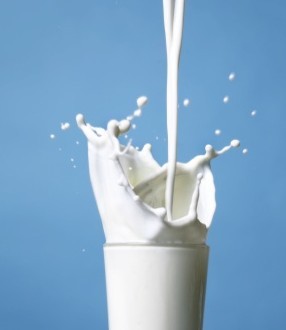 Search
Search
 Search
Search
 Milk is one of the common foods in our daily life. Milk contains rich proteins with various amino acids beneficial for human health. When people get kidney diseases, however, is milk still allowed? Is it still good or bad for their health?
Milk is one of the common foods in our daily life. Milk contains rich proteins with various amino acids beneficial for human health. When people get kidney diseases, however, is milk still allowed? Is it still good or bad for their health?
Nutrients from milk
The main nutrients in milk include: water 87.5%, fat 3.5-4.2%, 2.8-3.4% protein, 4.6-4.8% lactose and mineral salt 0.7%. There are as many as twenty types of amino acids within milk, of those eight types can not be synthesized by human body. The calcium from milk is one of the best calcium sources of human body. One liter of fresh milk contains about 1250mg calcium, which is the highest among all foods. The lactose within milk can help to regulate gastric acids and promote gastrointestinal motility and secretions in digestive glands.
In addition, the fat content within milk is about 2% to 3.2%. The nutrients from milk can be easily digested by human body, and regularly drinking milk can help to keep your skin moist. Milk has special benefits for elderly individuals. The cholesterol content from milk is 13mg per 100g, which is much lower than that of lean meat (77mg per 100g) and many other animal cholesterols. Further, certain components from milk can inhibit the amount of cholesterol that the liver produces, thus beneficial for lowering blood cholesterol levels.
Can patients with kidney diseases drink milk?
Patients with kidney disease are generally required a high-quality and low-amount protein diet, low sodium and low fat. Proteinuria often occurs because glomerular filters don’t filter nutrients properly. If people have proteinuria, protein intake should meet the protein loss which will help to correct hypoproteinemia. Milk contains healthy proteins which will supplement the individual needs.
In some cases, the kidney disease patients have retained water in their body to cause them swell up in limbs, eyelids, eyelids, etc. They will need to count the sodium and water they consume each day. Milk has rich water content, so if people take milk the water should be counted into their daily fluid consumption. Drinking some moderate milk is a good for human body, but drinking too much milk will provide extra fluid and proteins which will make the kidneys work harder.
In general case, 250ml milk, one egg and 60g lean meat per day will provide appropriate protein to kidney disease patients. However, as the individualized body sizes, kidney function and laboratory results differ, the best advice for a renal diet will be determined after overall condition is evaluated.